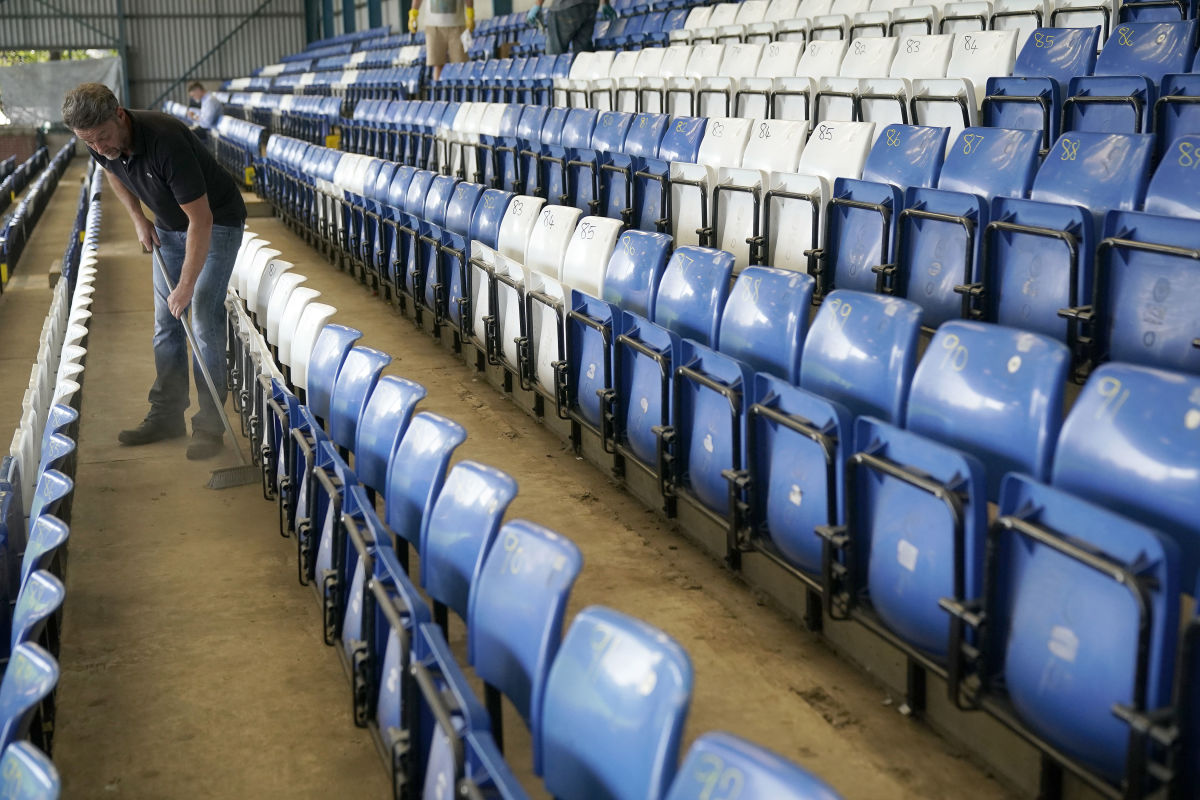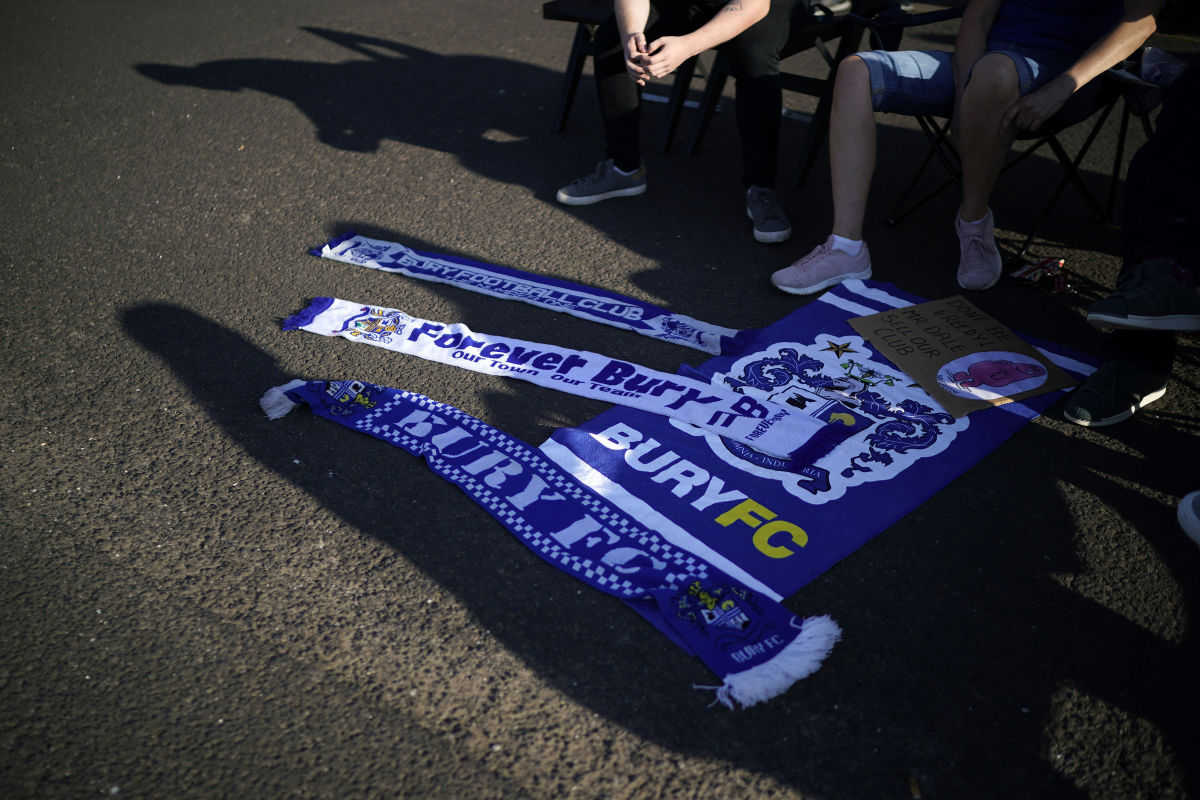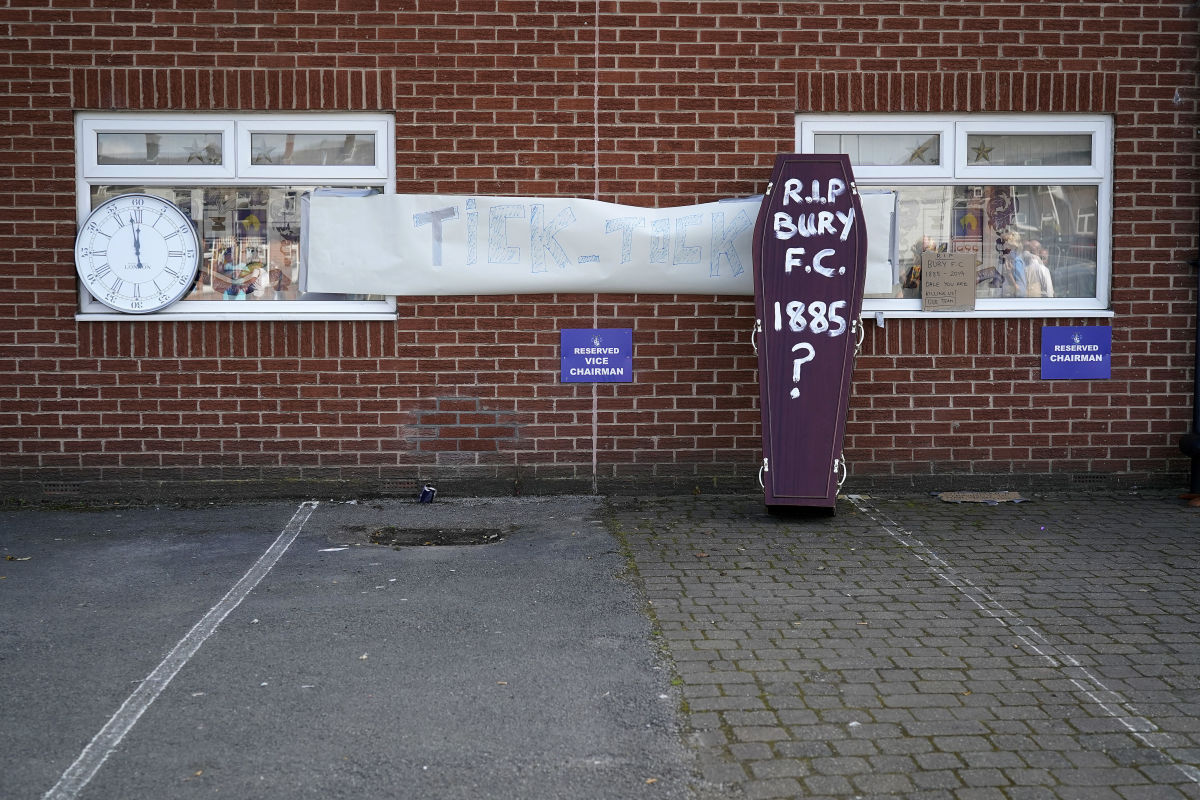Bury FC Is Functionally Dead. What Next?

One down, 85 to go.
On Tuesday 27th August, at 23:07 BST, Bury FC blinked out of existence at a Football League entity. They still exist, technically, but they're a shell. No league to play in, no fixtures, a skeleton staff with no idea where they're going to be working next week. One step closer to the Sky Sports utopia of the top six playing each other every week.
The Shakers are the first club to be kicked out of the Football League since the formation of the Premier League in 1992 – when both Aldershot and Maidstone United were liquidated. The former reformed as a phoenix club and clawed their way back into the Football League 16 years later...only to be back in administration with debts of over £1m, and relegated within five years.

There's a revealing part of the new Leeds documentary Take Us Home, where the business partner of owner Andrea Radrizzani repeats over and over again – 'I told him not to buy a football club. You don't make money from football clubs, you just lose it.' That's paraphrased, but not by much.
Football clubs as the playthings of businessmen with money to burn isn't a new thing, but the landscape has changed over the last couple of decades. A local businessman with a little bit of cash to burn just isn't enough now, not now the cost of survival has exploded through the stratosphere.
The average Premier League club made about £123m from the league's broadcast and 'central revenue' deal in 2018/19. That's more than the TV money that the 72 EFL clubs have to share – and most of that (and the £100m 'solidarity' payment from the top flight) goes to Championship clubs.
There's no way to sustainably make money from a football club. In the Championship, with tens of millions (a full 30%) of the league's revenue coming from Premier League parachute payments, 19 of 24 clubs lost money in 2016/17, and one of the remaining five had a big asterisk next to it. That's so comfortably the most moneyed division outside the Premier League, with the biggest attendances and the only other TV deal worth mentioning.
The money in the Premier League – more than ever – is a shiny beacon that calls investors to it. If you can just touch that cash, you can have a return of profit on your investment. You've got a great branding opportunity. It's the holy grail. That's why you're competing with about 15 other clubs in the second flight who are spending way beyond their means in hopes of getting there.

Vysyble, in October 2017, reported that clubs made an average loss of £15m in the seasons which saw them promoted to the Premier League. When the figures from 2016/17 came out the following year, it was revealed that all three promoted clubs' wage bills were higher than their entire revenue from that season. They lost £106m between them.
That's not a business plan, that's gambling a century or more of history, the love of generations of fans, an entire community, on the idea of hitting it big. Three clubs can hit it big a year, and the costs of trying get higher and higher. More clubs will falter. More clubs will fall.
Bad owners are a symptom, not the disease. They'll land around desperate clubs, sell them hope, strip them for parts, destroy them and walk away without a regret. The EFL have been complicit in letting them.

I'm a practical person. My instinctive response to a problem, to a crisis, is to take a beat and then start looking for ways to fix it. Not to wallow, or gnash my teeth, or cry woe and sadness about the whole situation. There's always something to do; some way to make things better. Right now, I'm lost. Football's ecosystem is so profoundly broken that I see absolutely no path to fixing things. Things will get worse before they get better.
At time of writing, the last communication from Bury FC came on Tuesday afternoon, asking fans not to enter the stadium without authorisation. Presumably this will be amended some time this week to ask if, actually, someone can pop in and turn out the lights.
